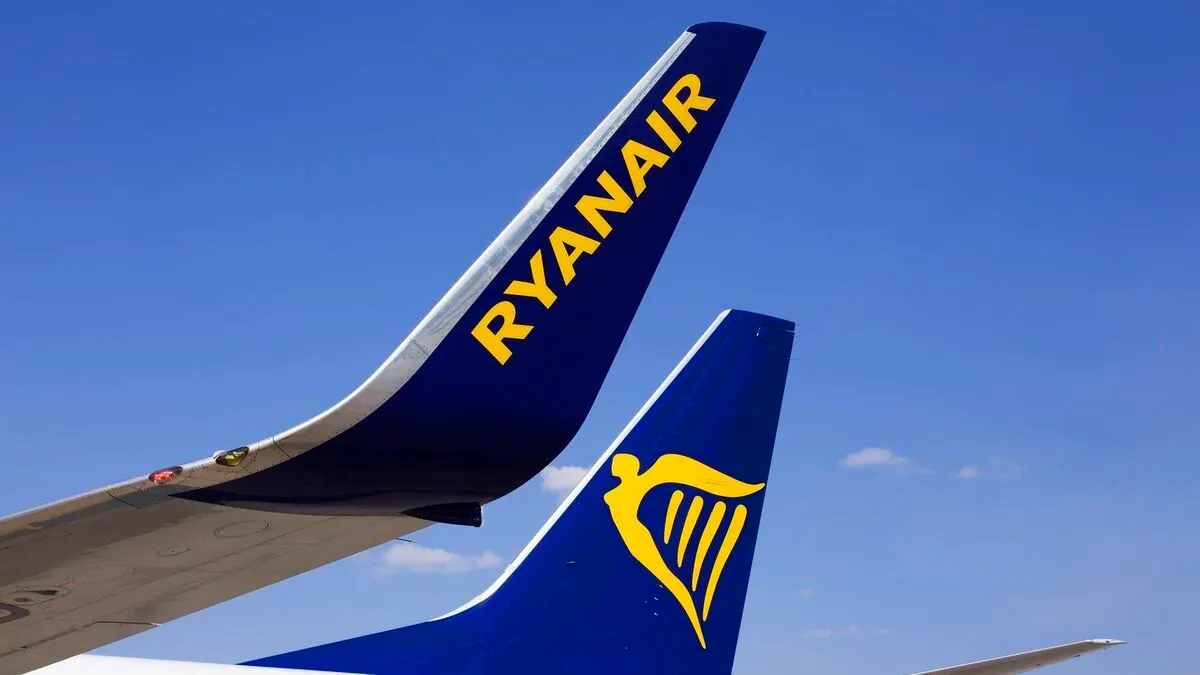
Ryanair Calls on EU and Governments to Overhaul Europe’s Broken Air Traffic Control Services
Ryanair, Europe’s largest and most popular airline, has issued a renewed and urgent call to the European Commission and national governments across Europe to address the growing crisis in Air Traffic Control (ATC) services. This demand follows Ryanair’s latest monthly “Delays League” report, which highlights the persistent failures of several major European ATC providers—particularly those in France, Spain, Germany, the United Kingdom, and Greece.
According to the report, these countries consistently top the charts for ATC-related flight delays, primarily due to chronic understaffing, outdated management structures, and a lack of accountability within their national ATC bodies. In contrast, other European nations such as Ireland, Slovakia, Denmark, the Netherlands, and Belgium have demonstrated that efficient, well-managed ATC systems are not only possible but already being delivered.
Delays Expose Systemic ATC Failures in Key European Markets
Ryanair’s “Delays League” is a month-by-month publication that compares the performance of Europe’s national ATC services based on total delays caused. The July 2025 edition paints a stark picture. France, Spain, Germany, the UK, and Greece remain at the bottom of the rankings—accounting for the majority of controllable air traffic delays across Europe.
These delays are not the result of bad weather, airport congestion, or airline inefficiency. According to Ryanair, they stem from preventable operational failures: ATC units being chronically understaffed, inefficiently run, and lacking modern management oversight.
The situation is especially frustrating given that some neighboring countries—many of whom face similar traffic volumes and operational demands—have managed to maintain exemplary ATC performance. Ireland, Denmark, Slovakia, Belgium, and the Netherlands have proven that effective staffing and good management can keep flight disruptions to a minimum. The question raised by Ryanair is simple: If some countries can operate their ATC services effectively, why can’t others?
Ryanair Calls for EU and Government Action
Ryanair has repeatedly raised this issue with European institutions and national authorities. The airline argues that while passengers and airlines continue to suffer the consequences of poor ATC performance, the responsible agencies remain largely unaccountable.
“Another month has passed, and Europe’s worst-performing ATCs in France, Spain, Germany, the UK, and Greece continue to inflict avoidable delays on thousands of Ryanair flights and millions of Ryanair passengers due to mismanagement and inexcusable understaffing,” said Michael O’Leary, Ryanair’s Group CEO.
“Yet, neither the EU Commission nor the national Transport Ministers responsible for these failing ATC services have taken any action to fix Europe’s broken ATC infrastructure. In stark contrast, countries like Ireland, Slovakia, Denmark, the Netherlands, and Belgium are delivering Europe’s most efficient ATC services, which proves that well-managed, properly staffed ATC is not just possible but is already being delivered by many EU States.”
Passengers Paying the Price for State Monopolies
Ryanair’s critique also points to the monopolistic structure of many national ATC systems. In most cases, ATC services are managed by state-run entities that operate without sufficient regulatory oversight or performance-based incentives. These monopolies are often shielded from competition, insulated from customer feedback, and disconnected from the actual cost of their operational failures.
“It is unacceptable that hard-working passengers and airlines continue to pay sky-high fees for substandard ATC services,” O’Leary added. “The answer is simple: these countries can deliver better service—but as complacent, protected state monopolies, they have no incentive to care about delays or passengers.”
Ryanair insists that reform must start with accountability. ATC providers need to be held to service-level standards, and staffing shortages—often cited as the root cause of delays—must be addressed as a priority. Furthermore, Ryanair is calling for structural reforms that would encourage modernization and, where appropriate, open these services to competition or at least make them more performance-driven.
The Human and Economic Cost of Inaction
While the issue of ATC delays may seem technical, the consequences are very real. Every delayed flight leads to thousands of passengers disrupted, missed connections, increased costs for airlines, and negative environmental impacts due to longer flight times and increased fuel burn.
Ryanair, which operates over 3,000 flights daily across Europe, is particularly vulnerable to these systemic delays. Despite operating its own schedules efficiently and maintaining high punctuality where possible, the airline’s performance continues to be negatively impacted by factors entirely outside of its control—namely, the failing ATC systems in some of Europe’s largest airspaces.
This inefficiency doesn’t just affect Ryanair. The knock-on effects ripple across the entire European aviation sector, harming tourism, business travel, and regional economies. In an era where digital tools, predictive modeling, and international collaboration should be helping streamline operations, the failure of national governments to ensure even basic functionality in their ATC systems is increasingly difficult to justify.
A Call to Action for Passengers
To raise awareness and apply public pressure, Ryanair has launched a dedicated webpage titled “Air Traffic Control Ruined Your Flight”. This platform allows passengers to learn more about the issue, share their own experiences, and directly contact their national Transport Ministers and EU representatives to demand change.
The airline is urging all travelers affected by avoidable ATC delays to speak out and demand a better standard of service from the authorities responsible.
“We need urgent action,” said O’Leary. “Recruit more air traffic controllers, modernize management structures, and eliminate these delays. Europe deserves better, and its passengers—who pay high fares and taxes to travel—certainly deserve better.”
Fixing a Broken System
As Europe’s aviation sector continues to recover post-pandemic and adapt to growing passenger demand, the need for a modern, efficient, and accountable ATC system has never been clearer. Ryanair’s message is blunt but accurate: the tools to fix the problem already exist; the political will does not.
Until that changes, millions of passengers will continue to face unnecessary disruption, and airlines will remain at the mercy of systems they cannot control but are forced to depend on.

